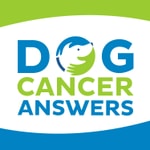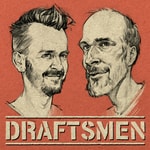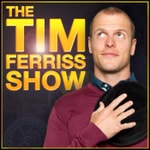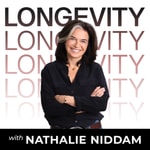Dog Cancer Answers – Details, episodes & analysis
Podcast details
Technical and general information from the podcast's RSS feed.

Dog Cancer Answers
Dog Podcast Network
Frequency: 1 episode/17d. Total Eps: 291

Recent rankings
Latest chart positions across Apple Podcasts and Spotify rankings.
Apple Podcasts
🇺🇸 USA - petsAndAnimals
01/08/2025#40🇺🇸 USA - petsAndAnimals
30/07/2025#51🇺🇸 USA - petsAndAnimals
28/07/2025#52🇺🇸 USA - petsAndAnimals
26/07/2025#73🇺🇸 USA - petsAndAnimals
25/07/2025#44🇺🇸 USA - petsAndAnimals
24/07/2025#62🇺🇸 USA - petsAndAnimals
21/07/2025#59🇺🇸 USA - petsAndAnimals
18/07/2025#66🇺🇸 USA - petsAndAnimals
16/07/2025#68🇺🇸 USA - petsAndAnimals
05/07/2025#95
Spotify
No recent rankings available
Shared links between episodes and podcasts
Links found in episode descriptions and other podcasts that share them.
See all- https://www.realmushrooms.com/
98 shares
- https://www.titosvodka.com/
83 shares
- https://www.dogcancer.com/podcast/
61 shares
RSS feed quality and score
Technical evaluation of the podcast's RSS feed quality and structure.
See allScore global : 79%
Publication history
Monthly episode publishing history over the past years.
Found a Lump on My Dog and Other Bad Signs | David Vail, DVM, MS, Dip. ACVIM (Oncology) #254
Episode 254
lundi 2 septembre 2024 • Duration 27:44
A Dog Nutritionist on Dog Cancer Diets and More | Lindsey Bullen, DVM, DACVIM (Nutrition) #253
Episode 253
lundi 19 août 2024 • Duration 49:41
AI in Veterinary Medicine | Dr. Kelly Diehl #244
Episode 244
lundi 29 avril 2024 • Duration 55:33
Choosing the Right Clinical Trial for Your Dog | Dr. Craig Clifford #155
Episode 155
lundi 21 février 2022 • Duration 37:08
What Natural Cancer Treatment for Dogs Can I Use? | Dr. Nancy Reese #154
Episode 154
lundi 14 février 2022 • Duration 19:48
What to Bring to Your First Oncology Appointment | Dr. Megan Duffy #153
Episode 153
lundi 7 février 2022 • Duration 28:39
What To Do With Leftover Dog Medications | Dr. Nancy Reese #152
Episode 152
lundi 31 janvier 2022 • Duration 20:05
Stage 3 Melanoma in Dogs: What Can We Do Next? | Dr. Nancy Reese #151
Episode 151
lundi 24 janvier 2022 • Duration 20:52
FETCH a Cure: Financial Help for Dog Cancer | Joanne Silverman #150
Episode 150
lundi 17 janvier 2022 • Duration 36:19
Dog Vomiting: Should I Call My Vet? | Dr. Nancy Reese #149
Episode 149
lundi 10 janvier 2022 • Duration 21:23









